-
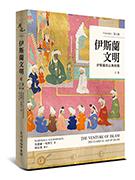
伊斯蘭文明(上卷)
伊斯蘭不只是宗教!讀完伊斯蘭文明,才能真正讀懂的世界史。 台灣首次出版伊斯蘭文明史套書,歷史迷必讀入門經典之作, 是掌握世界歷史的最佳案頭書。 穆罕默德於西元七世紀創立伊斯蘭教,歷經數百年,伊斯蘭發展出遠遠超越宗教範疇的世界性文明,觸及歐亞非三大洲,更融合波斯、閃族、突厥、蒙古、印度、甚至不同宗教的文化傳統。 《伊斯蘭文明》縝密刻畫伊斯蘭歷史的重大發展,一覽浩瀚的世界性文明發展。上卷「伊斯蘭的古典時期」描述穆罕默德建立伊斯蘭的過程,以及穆斯林政治體制從初期到伍麥亞朝、阿巴斯朝的繁榮發展。中卷「中期伊斯蘭的擴張」講述十到十六世紀伊斯蘭文明如何傳播至歐亞非三大洲,而其中的阿拉伯帝國與蒙古帝國的影響力更是遍布世界各地。下卷「火藥帝國與現代伊斯蘭」則是關於薩法維波斯帝國、帖木兒帝國與歐斯曼土耳其帝國帶來的二次繁盛,以及二十世紀穆斯林對抗西方,獨立自決意識如何興起。 讀完上卷,你會知道…… ★穆斯林朝同一方向禮拜的習俗源自於猶太教,伊斯蘭其實是猶太教、基督宗教等一神教傳統的革新版本。 ★穆罕默德不只是伊斯蘭教的創立者,更改革當時阿拉伯半島的社會制度,提出全新的價值觀念。 ★為了改善當時特權階級中情婦與私生子受歧視的狀況,伊斯蘭建立一夫多妻制,規定丈夫須公平對待每位妻子,所有子女都擁有繼承權。 ★什葉派與順尼派分裂的開端,伊斯蘭社群中為何衍生出不同的政治與宗教主張。 ★繽紛燦爛的伊斯蘭藝術融合了許多不同的文化,更反映出當時的社會狀態。 歷史學界權威著作中的遺珠之憾- 領先薩依德的《東方主義》十餘年, 歷史學家哈濟生領先世界的世界史鉅作。 哈濟生堅信,理解任何歷史發展都應該從整個大歷史的角度切入,才能看見真正的歷史全貌,這樣的歷史哲學在《伊斯蘭文明》中表露無遺,他推翻了全球文明是以西方為中心的迷思,闡述伊斯蘭文明參與現代文明的重要角色。 《伊斯蘭文明》的寫作比薩依德的《東方主義》早了十餘年,但哈濟生已經在書中以歷史為佐證,批判東方主義和西方霸權的自滿,更讓人驚豔的是,這樣具有前瞻性的觀點竟然出自一位西方學者之筆,更顯現他深刻且敏銳的思考與反省。 哈濟生還不只描寫朝代政權的輪替,也關注背景脈絡、社會階級、世俗文化、文學藝術等面向,他筆下的伊斯蘭文明鮮活立體、充滿哲思與魅力。 《伊斯蘭文明》娓娓道來數百年的文明歷史進程,但其中所隱含的觀點卻遠遠超越歷史,幾乎預示了現代西方與伊斯蘭世界之間對立的激化,即使已經成書四十年仍歷久彌新。 世界歷史的幕後推動者:伊斯蘭文明 在西方主流撰寫的主流世界歷史中,總是把「東方」視為「原始」、「落後」的代名詞,但事實上先進的現代性發展並非完全依靠西方的力量,其中更有強大東方力量的推動。伊斯蘭文明對宗教、法律、科學、哲學各個領域都有深遠的影響,卻在主流歷史敘述中銷聲匿跡。 世界史其實並非由西方帶領,而是各個文化與文明發展的交融,但台灣長期受西方觀點影響,導致伊斯蘭文明史也在台灣的歷史課堂上缺席。我們讀著西方版本的世界,就以為那是世界的全貌。 而東西衝突頻繁的當代,正是我們跳脫西方偏見的最佳時機。透過閱讀歷史、增進多元的史觀,才能補足片面的世界史想像。當我們能從不同的視角觀看人類的過去,才能深刻理解世界的當下。 本書特色 ★伊斯蘭和你想得不一樣!伊斯蘭不只是宗教,更是繁盛偉大的世界性文明! ★跟隨權威史家哈濟生的前瞻視野,走過伊斯蘭文明史上每一個偉大時刻。 ★台灣第一套以伊斯蘭為主軸的歷史書,歷史課本上沒教的伊斯蘭文明,不容錯過。 媒體推薦 「這是一部無與倫比的著作,不只是因為作者對其主題的掌握極佳,更因為它為人們展示了歷史該怎麼寫才最為理想。」──《紐約客》雜誌(The New Yorker) 「這部著作本身就是一本百科全書……作者不只闡釋了大量的歷史資料,飽富思想、甚至帶有哲學性的文風。」──《非洲歷史研究國際期刊》(International Journal of African Historical Studies) 「哈濟生避開了東方學者常犯錯誤的陷阱,而從伊斯蘭文明本身的複雜性看待之……他寫作的範圍極為廣泛,涵蓋了伊斯蘭歷史上所有偉大的時刻。」──William B. Quandt(美國維吉尼亞大學政治學教授,曾任北美中東研究學會理事長) 美國亞馬遜網路書店讀者評論 「所有你想知道的伊斯蘭歷史、概論性著作能觸及的所有細節都在這本書裡。」 「西方研究伊斯蘭與其歷史的里程碑……不像大部分的著作,哈濟生不只書寫政治實體與朝代,更關注了社會的知識與藝術成就。」 「這個系列是真正的珍品……哈濟生沒有讓自己的偏見影響了這部著作,而用非常客觀且精湛的觀點描寫伊斯蘭歷史與伊斯蘭世界。絕對值得在書架上放一套來收藏。」 -
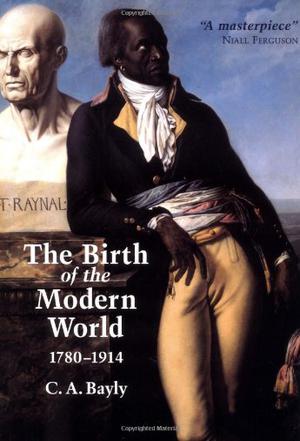
The Birth of the Modern World, 1780-1914
The Birth of the Modern World is a wonderfully ambitious book that effectively demonstrates the global nature of the modern world and the need to decentre national histories and think big. It is a 'thematic history' demonstrating how 'historical trends and sequences of events, which have been treated separately in regional or national histories, can be brought together' (p. 1). Bayly's emphasis is on the interdependencies and interconnectedness of political and social changes across the world in a period well before contemporary globalisation. It is in part a culmination of his own work over a long period – using his rich and detailed knowledge of Indian and South Asian history as he did previously in Imperial Meridian – as a basis from which to reflect on national, imperial and global concerns. It is an intervention in the current debates over globalisation, for he shares the insistence of A. G. Hopkins and others that the contemporary version of this is not the first; theorists must be more careful to specify the particularities of phases of globalisation given its long history. (2) It is also an attempt to put a particular reading of connection and interdependence at the heart of the making of the modern world, thereby unseating E. J. Hobsbawm's magisterial four volumes on the long nineteenth century, The Age of Revolution, Industry and Empire, The Age of Capital and The Age of Empire with its drama of the unfolding logic of capitalism and exploitation, and providing a new account for these post-Marxist times. In the process it cocks many a snook at post-colonial theorists with their 'polemic' and their 'jargon' and the particular sets of antagonisms and dynamics that they stress – racialised difference –and is proud of its sceptical stance towards theory, keen to avoid 'pretentious words'. The strength of Bayly's analysis is that it insists on modernity as a global process. The downside from my perspective is the absence of an analysis of power. As he admits right at the end of the book an emphasis on networks and connections can (and indeed does in this instance) take away from the question of power – who wields it, over whom, and how? His account, he insists, is not one of collaboration but subordination. -
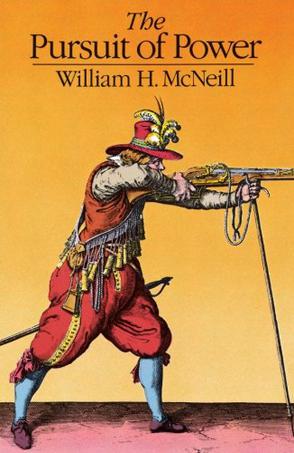
The Pursuit of Power
In this magnificent synthesis of military, technological, and social history, William H. McNeill explores a whole millennium of human upheaval and traces the path by which we have arrived at the frightening dilemmas that now confront us. McNeill moves with equal mastery from the crossbow--banned by the Church in 1139 as too lethal for Christians to use against one another--to the nuclear missile, from the sociological consequences of drill in the seventeenth century to the emergence of the military-industrial complex in the twentieth. His central argument is that a commercial transformation of world society in the eleventh century caused military activity to respond increasingly to market forces as well as to the commands of rulers. Only in our own time, suggests McNeill, are command economies replacing the market control of large-scale human effort. The Pursuit of Power does not solve the problems of the present, but its discoveries, hypotheses, and sheer breadth of learning do offer a perspective on our current fears and, as McNeill hopes, "a ground for wiser action." "No summary can do justice to McNeill's intricate, encyclopedic treatment. . . . McNeill's erudition is stunning, as he moves easily from European to Chinese and Islamic cultures and from military and technological to socio-economic and political developments. The result is a grand synthesis of sweeping proportions and interdisciplinary character that tells us almost as much about the history of butter as the history of guns. . . . McNeill's larger accomplishment is to remind us that all humankind has a shared past and, particularly with regard to its choice of weapons and warfare, a shared stake in the future."--Stuart Rochester, "Washington Post Book World " "Mr. McNeill's comprehensiveness and sensitivity do for the reader what Henry James said that Turgenev's conversation did for him: they suggest 'all sorts of valuable things.' This narrative of rationality applied to irrational purposes and of ingenuity cannibalizing itself is a work of clarity, which delineates mysteries. The greatest of them, to my mind, is why human beings have never learned to cherish their own species."--Naomi Bliven, "The New Yorker " -
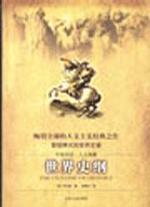
世界史纲
韦尔斯的《世界史纲》第一版出版于1920年,至今共再版过33次,被译成26种文字,全球发行超过120000000册。她倾倒了来自各个领域,各个阶层的人,在通俗史学领域的影响无与伦比。 她从地球的形成开始谈起,一直谈到第一次世界大战,她描写了人类社会的胜利与失败。她的主题是:拯救世界应该通过教育,而不是诉诸于战争。阅读本书,你会感觉到作者字里行间倾注的激情和一个人文主义作家对人类的关怀。 本书生动地描述了世界上人类社会的演变进化历史。她将带你从原始遗迹走到现代文明,她将让你拜见亚历山大大帝、波斯诸王、十字军战士、中国皇帝、基督教徒、各大哲学家、各大艺术家等,她将和你一起仔细品味世界历史的辉煌画卷。然后,她将在你身边站住,轻轻地说“这就是我们的遗产。” 作为近现代第一位以全球视野写作的作家,韦尔斯吸取了当时包括社会学、人类学、考古学等在内的最新成果,把人类历史置于一个宏大的背景之中。他笔下的历史陈述不拘泥于片面的考据,而意在给读者提供一个宏伟、宽广的大历史视野。在这部二十余万字的《世界史纲》中,作者用生动的语言、流畅的叙事结构,把自时空宇宙诞生到第一次世界大战的漫长人类历史清晰、简洁地摆在读者面前。正是在这个意义上,《世界史纲》的价值和可阅读性毫不逊色于一直畅销于国内的美国作家房龙的同类作品。 -
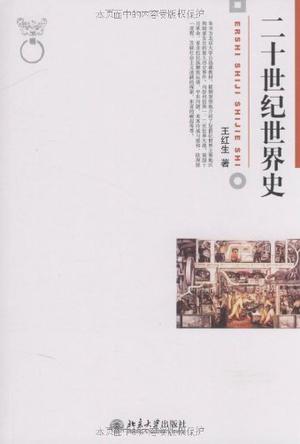
二十世纪世界史
《二十世纪世界史》为北京大学公选课教材,提纲挈领地介绍了20世纪世界主要地区和国家发生的重大历史事件。内容包括第一、二次世界大战,俄国十月革命、亚非拉民族解放运动、中东问题、美苏冷战与缓和、欧洲统一进程、苏联社会主义道路的探索、东亚的崛起等等。 -
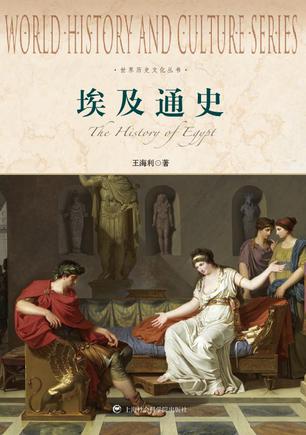
埃及通史
本书兼顾学术性和知识性,力求体现史著的血肉丰满,以生动的笔触描绘了一幅绵延五千年的埃及文明和历史的斑斓画卷,即从埃及文明的起源,经古王国时期、中王国时期、新王国时期、托勒密王朝、罗马帝国时期、拜占庭帝国时期、倭玛亚王朝、法蒂玛王朝、马木路克王朝、奥斯曼土耳其帝国时期、穆罕默德·阿里王朝,至英国统治时期和埃及共和国的埃及历史。全书以埃及法老形象的演变作为反映埃及历史变迁的一面镜子,揭示了埃及民族的禀赋和创造力,展现了其开创的辉煌的古代文明,阐述了埃及历史的兴衰之道,透视了埃及走向现代文明的艰难历程。